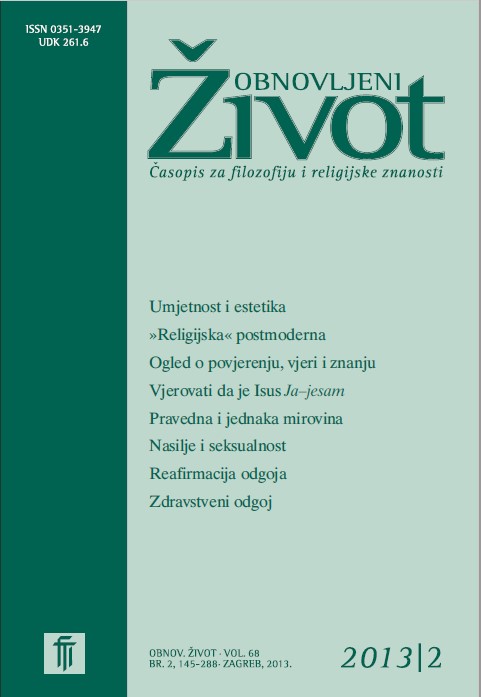Believing that Jesus is I–am (John 8:24)
Keywords:
Jesus’ I–am, faith, life, death, God’s name, God’s self–revelation, Exodus, Exile, nomen sacrum, the Word of God, high ChristologyAbstract
In his enquiry into Jesus’ I–am as the object of faith (John 8:24) the author approaches the biblical text synchronically. However, he offers two diachronic notes on the topic as well. Jesus’ presentation of Himself as the I–am is accompanied by attitudes ranging from adoration (John 18:6; Matt 14:33) to his death sentence (Mark 14:64). The author considers that the context of John 8:24 (John 8:21–59; cf. vv. 28.58) is a Christological pesher, a midrashic actualisation of the texts from Second Isaiah where God’s name, when revealing Himself, is I–am (LXX: Isa 41:4; 43:10.25...) which is the nomen sacrum for the God of the Exile. Theologically, not etymologically, Jesus’ I–am is related also to God’s name of the Exodus (Ex 3:14). By means of the texts containing Jesus’ I–am (John 8:24; cf. vv. 28.58; 13:19) John develops his Christology of the Word of God. Already from the Gospel Prologue the reader knows that Jesus is the Logos, the Word of God incarnate (cf. 1:1.14), while the texts containing I–am sayings allow the Evangelist to give the reader the opportunity, one might say, to »hear« directly, in the first person, the Word of God itself. When Jesus speaks (and acts), it is God speaking (and acting), and not as before, to the Hebrews only (cf. Exodus) or solely to the captives (cf. Exile). It is in Jesus, who is the bearer of God’s name, I–am, that God reveals Himself as the Saviour of every human being, of the whole world (cf. John 4:42). According to John’s Gospel, therefore, everyone who believes in this identity of Jesus will be saved: he shall live (cf. John 8:24).
Downloads
Published
Issue
Section
License
Jednom prihvaćeni članak obvezuje autora da ga ne smije objaviti drugdje bez dozvole uredništva, a i tada samo uz bilješku da je objavljen prvi put u Obnovljenom životu. Uredništvo će obavijestiti autora o prihvaćanju ili neprihvaćanju članka za objavljivanje.
Članci objavljeni u časopisu se, uz prikladno navođenje izvora, smiju besplatno koristiti u obrazovne i druge nekomercijalne svrhe.


